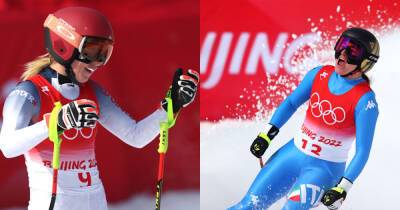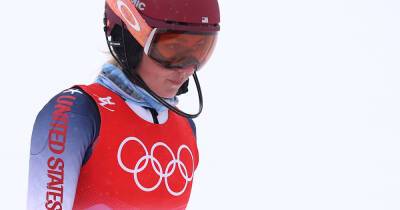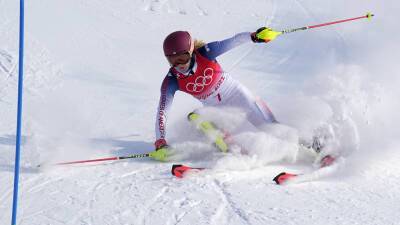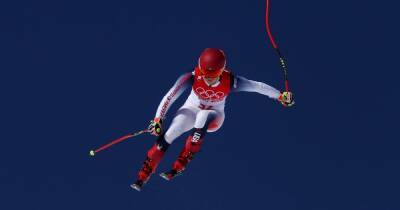Shiffrin finishes super-G in 3rd Olympic race; won't medal
BEIJING (AP) — Mikaela Shiffrin completed the super-G at the Beijing Olympics on Friday in a time way out of medal contention — but for the first time in three races at the 2022 Games, she made it to the finish.
The two-time Olympic Alpine gold medalist crossed the line at the bottom of a course known as The Rock in an unofficial time of 1 minute, 14.30 seconds. That left the 26-year-old American more than a half-second behind early leader Lara Gut-Behrami of Switzerland.
It also put Shiffrin in eighth place after only 11 of the 44 entrants had taken their turns down the slope.
Shiffrin never had entered a super-G at an Olympics before, although she did win a gold in the event at the 2019 world championship and a bronze at last year’s worlds.
She failed to finish her opening run in the two-run events that preceded the super-G in Beijing: the giant slalom and the slalom, both of which she won at past Olympics.
Shiffrin actually started well enough Friday, reaching the initial check point in 12.66 seconds — ahead of Gut-Behrami’s pace.
But from there, Shiffrin lost touch with the leader, losing hundredths, then tenths, of seconds along the way.
The Beijing Olympics hardly went to plan for Shiffrin at the outset. Couldn’t have gotten off to a worse start, really.
First came Monday’s giant slalom, which she won at the 2018 Pyeongchang Olympics. She teetered out of control and failed to properly handle a turn after five gates — her day was done about 10 seconds into the first leg of a two-run event.
That was followed by Wednesday’s slalom, which she won at the 2014 Sochi Games to become, at 18, the youngest women’s champion in that race in Olympic history. Quite similar to the GS, she skidded wildly on a turn after five







